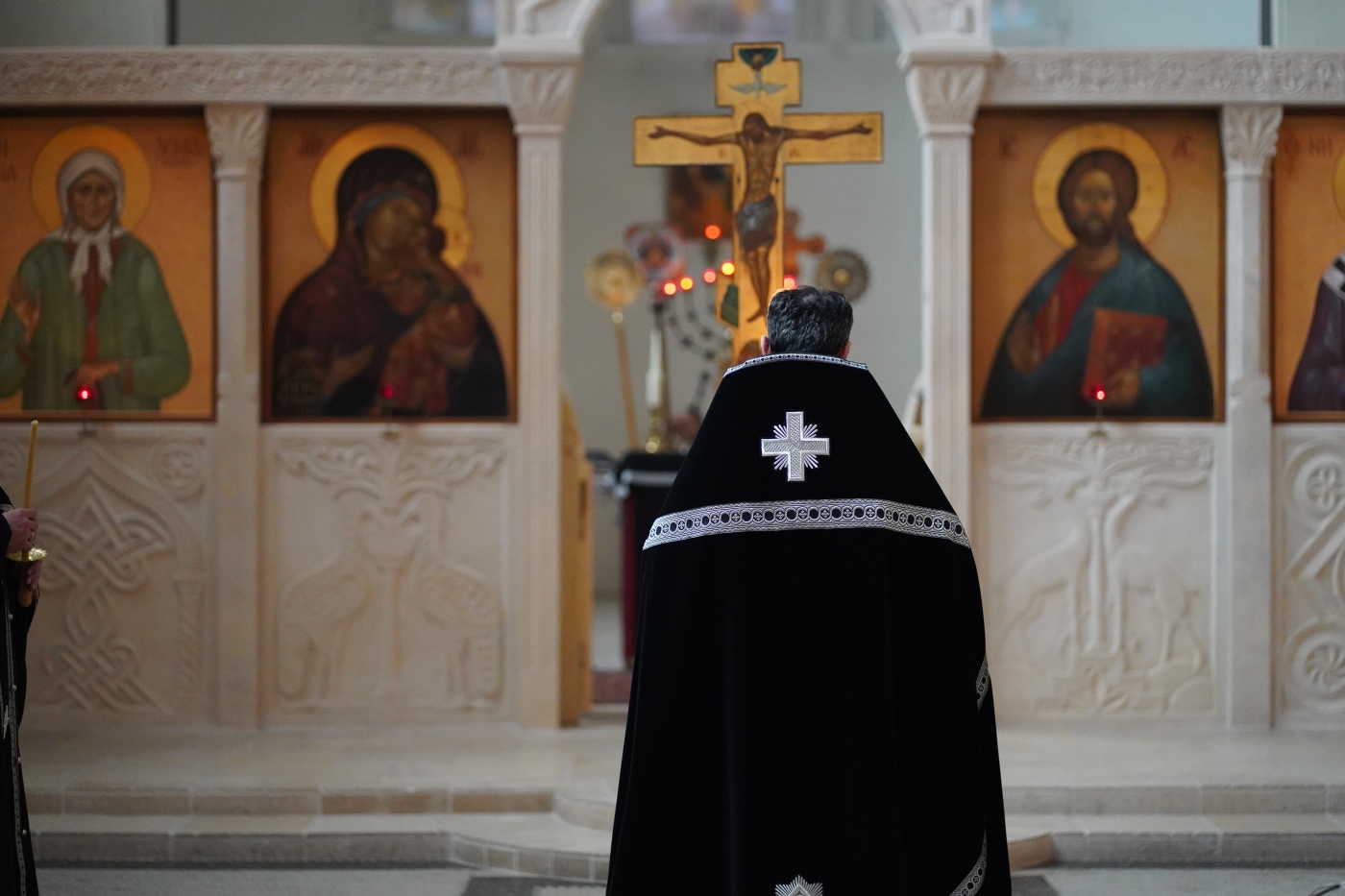ROME – In the latest sign of the strain that the Ukraine war is putting on the global Orthodox community, Amsterdam’s Russian Orthodox parish has formally asked for canonical permission to break away from Moscow and to join the Orthodox Patriarchate of Constantinople.
St. Nicholas of Myra parish announced the move in a pop-up on their parish website Saturday, saying the decision “is extremely painful and difficult for all concerned.”
The move comes after several recent declarations from Russian Orthodox Patriarch Kirill appearing to support Russia’s invasion of Ukraine, in which he held the West responsible for the conflict by allegedly disregarding Russia’s security concerns.
RELATED: Orthodox Patriarch blames Ukraine war on western ‘Russophobia’
According to the Dutch news site Nederlands Dagblad, the four priests and a deacon stationed at St. Nicholas originally wrote to their diocesan authority, Archbishop Elisey, to say they had decided to refrain from mentioning Kirill’s name during their celebration of the Divine Liturgy because he “expressed his full support for the war.”
Prior to sending the letter, the parish, where Orthodox believers from different backgrounds and nationalities had worshipped together for years, had already signed a petition asking Kirill to call for an end to the invasion of Ukraine by Russia.
Since the beginning of the war just over two weeks ago, at least 15 Russian Orthodox dioceses have publicly given their blessings to priests to stop commemorating Kirill in their Divine Liturgy celebrations.
While Elisey apparently did not grant this permission, the pastors of St. Nicholas decided to refrain from using his name of their own accord, but, at the time, with no intention of leaving the Russian Orthodox Church.
In a statement to parishioners announcing the reasons for their decision, the pastors said, “We have not left the Moscow Patriarchate. While we have suspended the memorial of Patriarch Kirill, we continue to remember Archbishop Elisey as our diocesan bishop.”
They noted that at certain moments throughout Russian Orthodox history, clerics “have found it impossible to remember a church leader who took a certain political position,” and referenced several priests who refused to mention the patriarch’s name when he “declared himself loyal to the Bolshevik state in 1927.”
“None of them saw this as leaving the church,” they said.
However, the situation changed after an unannounced visit from Elisey to the parish last Sunday, March 6. According to Nederlands Dagblad, the archbishop arrived in a diplomatic car, believed to belong to the Russian Embassy to the Netherlands, after the Divine Liturgy had already begun. Orthodox custom requires the archbishop to celebrate the Divine Liturgy if he is present, so Elisey took over.
Under Orthodox rules, if the name of the patriarch is not pronounced when the archbishop presides, it results in an immediate ecclesial schism, so Kirill’s name was finally mentioned by a deacon who does not belong to the parish.
Once the service concluded, Elisey reportedly held private conversations with the two most senior priests of the parish to inform them “there is great interest in your church” and said their attitude “is of great concern not only to the patriarchy, but also to the Russian Ministry of Foreign Affairs.”
The priests said that ever since Elisey’s visit last Sunday, there has been increased pressure on the parish, which on Tuesday was vandalized with the controversial pro-Russia “Z” symbol.
In light of the threats, the parish has been in contact with both the police and the local judiciary.
Netherlands Justice and Security Minister Dilan Yeşilgöz-Zegerius visited St. Nicholas Saturday in a show of support, saying in a tweet that it is “impressive how the Amsterdam parish stands for connection.”
In a note to their parishioners, the priests said they will not back down from their decision not to pronounce Kirill’s name because conscience cannot allow it when the head of their church actively supports the invasion of a sovereign nation.
The priests announced that it was no longer possible for them “to function within the Moscow Patriarchate and provide a spiritually safe environment for our faithful” during an extraordinary parish council meeting March 12 to address “the threat to the parish and the clergy.”
According to Saturday’s pop-up message on the parish website, the priests said they have already sent a request to Metropolitan Athenagoras of Belgium, the Netherlands, and Luxembourg within the Patriarchate of Constantinople “to be received into his diocese.”
Athenagoras has expressed openness to considering their request and is sending in his own request for a canonical release of the priests to Elisey.
In the statement, the parish council said they support the decision of their clergy, and “proposes that the parish follow the clergy in this.” They have organized a special general parish meeting March 26 to discuss the proposal.
In the meantime, all parish services will be suspended “due not only to concerns of safety, but also to pastoral considerations,” the council said, adding, “In this extremely tense situation, it would be virtually impossible to achieve the prayerful atmosphere we strive for during services.”
While many within the Russian Orthodox Church have opposed Kirill’s initial silence and subsequent support for the war – including a group of nearly 300 Russian Orthodox priests and archpriests who called for an immediate ceasefire – this decision from the Amsterdam parish is among the first public breakaways due to Kirill’s position on the Ukraine war.
It will also undoubtedly be seen as a slap in the face to Kirill, as he has long been seen as a rival of Patriarch Bartholomew of Constantinople, who is seen as too indulgent of the West, and who further upset relations with the Russian Orthodox in 2018 with his decision to establish a new Orthodox body in Ukraine by granting autocephaly to the Ukrainian Orthodox Church.
Follow Elise Ann Allen on Twitter: @eliseannallen











